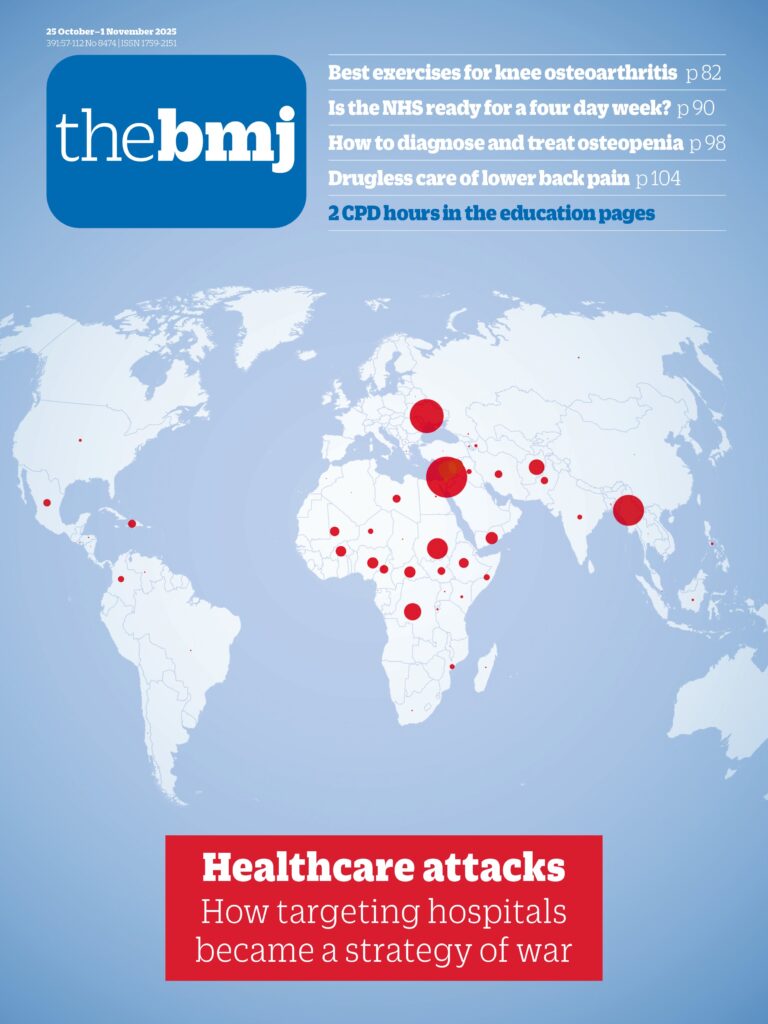- Tom Roques, immediate past vice president for clinical oncology and consultant clinical oncologist,
- Nicky Thorp, vice president for clinical oncology and consultant clinical oncologist,
- Stephen Harden, president and consultant radiologist,
- Katharine Halliday, immediate past president and consultant paediatric radiologist
- Correspondence to: tom.roques{at}nhs.net, nicky_thorp{at}rcr.ac.uk, Stephen_harden{at}rcr.ac.uk, kath.halliday1{at}nhs.net
Long meetings involving dozens of clinicians can delay patient care and leave no room for service improvement. It’s time for a fresh approach, say Tom Roques and colleagues
For 30 years, multidisciplinary team (MDT) working has been central to UK cancer care. This collaborative approach was supposed to promote consistent, high quality patient care, using data and research to continually improve outcomes.
However, many clinicians agree—and research backs this up—that the main vehicle for that teamwork, the weekly cancer MDT meeting, takes up too much of clinicians’ time1 and doesn’t improve patient outcomes. As cancer incidence rises,2 it’s time for a radical rethink. The upcoming Cancer Plan for England is the perfect opportunity to reform decision making in cancer treatment to enable clinicians to deliver better care.
In 2000, the NHS Cancer Plan stipulated that “the care of all patients with cancer should be formally reviewed by a specialist team.”3 The MDT meeting was born and was subsequently enshrined by the National Institute for Health and Care Excellence.4 It became common practice that every new patient with cancer should have their care discussed in an MDT meeting and that decisions couldn’t be taken without ratification in the meeting.
As cancer incidence has risen the meetings have become longer, often lasting for hours, and discussion of each patient has become shorter. The need to streamline meetings was recognised in an NHS England report in 20205 but, despite a worthy attempt to implement its recommendations, change hasn’t stuck. With an increasing focus on NHS productivity, it’s time to re-examine how MDTs and their meetings can make the best use of clinical expertise to produce the best results for patients.
Delays to care
Evidence shows that the current structure of MDT meetings can produce poor quality decisions that ignore the patient’s perspective and add delays to already stretched pathways.16 Multiple national cancer (NATCAN) audits7 and Getting it Right First Time reports8 have found that, despite the many hours of discussion, marked variation persists in cancer care and outcomes.
The meetings frequently involve many clinical experts discussing 50 or more cases. Cancer Research UK found that more than half the discussions of each case took less than two minutes and that those towards the end1 were shorter and of worse quality. Radiologists, pathologists, and administrative staff spend many more hours preparing for these meetings and can end up duplicating effort. Healthcare staff who aren’t doctors are often relatively quiet. And despite many people being present, often very few of them, if any, have met the patient and are able to convey the patient perspective.
It’s now common for patients to have their case discussed at multiple MDT meetings. Even simple treatment decisions wait until the next meeting. Meetings are no more frequent than weekly, so waiting for a meeting can delay patient care by days or weeks.
It’s clear that the current way of working can cause treatment delays, result in poor quality decisions, and waste clinicians’ time—an expensive and scarce resource. Previous estimates, many of which are over a decade old, suggest that MDT meetings cost £100-£500 per patient discussed.9 Cancer Research UK reported that the annual cost of team meetings rose from £88m in 2011-12 to £159m in 2014-15, mostly due to a rise in activity.1 We would estimate that today these costs have increased even further.
Auditing outcomes
An effective team needs nurturing. The quality of cancer treatment decisions depends on the members of a well led team having time to develop their skills. Teams need protected time, separate from MDT meetings where cases are discussed, to reflect on how they work together and to use national cancer datasets and audit information to improve patient care. As ever more patients are discussed in MDT meetings, teams are losing focus on these important points.
There are many ways other than MDT meetings to ensure that clinicians take good decisions with their patients. We must harness technology, including AI, to systematically collect metrics about patients, including comorbidities, and about their cancer, such as staging, grading, and genomics. We need to agree and use national or international guidelines to clarify treatment options in each clinical scenario. Decision support tools can also help patients to choose the right treatment for them. We should record and audit treatment decisions and outcomes. Such systems should reassure doctors that they’re making the best decisions with their patients and decreasing the risk of litigation.
MDT meetings still have a role for discussing the most complex patient cases, which genuinely need many people to be involved in making a treatment recommendation. But most patients discussed at cancer MDT meetings don’t fall into this category.
As cancer incidence continues to rise, MDT meetings on cancer must be overhauled. Royal colleges representing doctors, nurses, and other cancer care professionals are united in this view10 and eager to drive this change forward.
Radical reform of MDT working would improve patient outcomes and save clinicians thousands of hours. With the right tools, and by using the time currently spent in MDT meetings, cancer teams can refocus their efforts on quality improvement and patient centred decision making to ensure equitable access to high quality care for all patients with cancer.
Footnotes
-
Competing interests: We have read and understood the BMJ Group policy on declaration of interests and declare the following interests: none.
-
Provenance: Commissioned; not externally peer reviewed.

